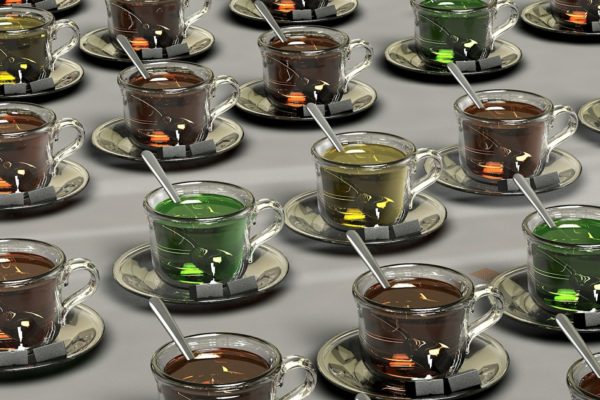In the aftermath of the election and the run-up to the holiday season, I have realised just how thankful I am for writing, for words, and for language. In that vein, I decided to take a step back and review what I’ve learned so in the three months I have lived in New York, in terms of language.
Mental translations have become a part of my daily routine and it’s been difficult to say things wrong just so everyone understands what I’m saying. Thankfully though, pumpkin spiced lattes seemed to have disappeared off most menus and christmas trees are everywhere, so it’s easier to stay strong these days. Plus, I hear mental exercise is just as challenging and therefore rewarding as physical exercise.
Note: for an optimal reading experience, please read all American English in Kim Kardashian’s voice, and all British English in Colin Firth’s.
Duvet (noun, British English)
What Americans refer to as comforters. I’d say “comforter” without any qualms; I don’t have desperately strong feelings about this, except for the fact that “duvet day” (a refusal to get out of bed and do anything productive) is a part of my everyday vernacular as well as common occurrence.
“Comforter day” doesn’t have the same ring to it, now does it? I am considering saying “comforter o’clock.” But only considering.
NB: pronounced doo-vay
Electoral College (noun, American English)
It’s…well – a democratic, no, an undemocratic, no…Forget it.
Half-past (adjective, British English)
I often omit the past (because who has the time for the extra word?) and this causes mass confusion, anxiety and general anger amongst everyone I have met here. I am, obviously, being deliberately vague and unhelpful. Half two, for example, is not a valid way to answer a time-related question. Half past two is acceptable. Two-thirty is preferable.
Half two causes much confusion amongst my friends. Do I mean half before two, meaning one thirty? Or do I mean half of two, meaning one? “WHAT DO YOU MEAN?” scream friends who thought they had asked a simple question.
“They can’t even tell the time over there”, they all sigh, referring to Britain, having greeted me with “‘Sup?”: clearly, skipping “what’s” is a whole different ballgame. Obviously.
Homegirl (noun, American English)
Having recently been called “Homegirl” by a friend in workshop, I feel validated. It is the ultimate medal of friendship that does not get handed out casually, or often. At least that is what I am telling myself.
The British English equivalents seem to be bae (though this is, originally, American), bestie, mate, bro, or darling (if feeling very British, idiotic or practicing for a first date with Prince Harry).
Lemsip (proper noun, British English)
The only medicine/drink that aids recovery from the flu (except for Lucozade). No American equivalent can be found. How anyone recovers from illness, here, is beyond me. My editor has suggested it’s because you’re all too busy licking subway poles to bother with getting sick. I personally think there’s something medicinal in all Starbucks beverages which would go some way in explaining their ubiquity.
Pants (noun, American English)
Meaning trousers in America, across the pond it is a word young children use to condemn something.
“Do you like maths?” (Note: maths, not math)
“No!”
“Why?”
“It’s pants!”
#BadLanguage #NoDigestivesForYou
NB: Digestives are a brand of biscuit (you Americans call biscuits “cookies” – important because, for us, all biscuits are sweet, whereas savoury biscuits seems to be a thing here. Unfortunately.) Think a better version of Graham Crackers.
Period (noun, American English)
In a seminar, in which we discussed the effectiveness of short sentences and fragments, there occurred a repetition of the word “period” several times, and this immediately took me back to my tween-age years when, in Year Eight (translation: eighth or ninth grade, and yes this is a translation within a translation), it was accompanied by giggles and immature squeals.
We say full stop. Period.
‘Z’
Who knew a single letter could tear apart friends? The debate raging across the Atlantic Ocean is not about tea or who has the worst teeth. It’s “zed” versus “zee”. Who knew?
It came to a head on the subway when I was with a group of (ex) friends and they all asked, with incredulity, if I sang the alphabet song as “w, x, y, zed” rather than “w, x, y, zee”. I proceeded to sing the alphabet song and ended, correctly (and with most of the carriage wondering if I was already drunk at half eight), with “zed”. After erupting into laughter, they have concluded I cannot recite the alphabet. Or sing.
It’s okay – I’ve concluded that they can’t speak English.

Karishma Jobanputra (good luck trying to pronounce that) is a first year MFA fiction student from London. She graduated from the University of Warwick with a degree in Law and, realising it was nothing like Suits, decided to pursue writing. Although primarily a fiction writer, she also attempts to write poetry and has had articles published online at The Guardian, KettleMag UK and The Boar (University of Warwick).




